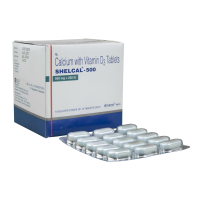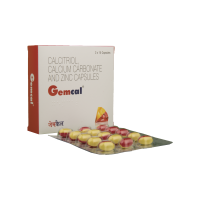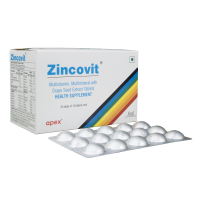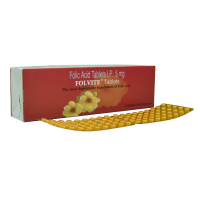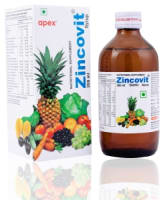NOTICE: unsafe with : Alcohol
USED FOR:
Allergic disorders
Dry cough
COMPOSITION:
Phenylpropanolamine (NA)
Chlorpheniramine (NA)
Dextromethorphan (NA)
Therapeutic Uses:
respiratory

CAUTION
Taking phenylpropanolamine with alcohol can increase the risk of cardiovascular side effects such as increased heart rate, chest pain, or blood pressure changes.

WEIGH RISKS VS BENEFITS
Libitus Syrup may be unsafe to use during pregnancy.Animal studies have shown adverse effects on the foetus, however, there are limited human studies. The benefits from use in pregnant women may be acceptable despite the risk. Please consult your doctor.

No information is available on the use of Libitus Syrup during lactation. Please consult your doctor.

Libitus Syrup may cause side effects which could affect your ability to drive.

Libitus Syrup is probably safe to use in patients with kidney disease. Limited data available suggests that dose adjustment of Libitus Syrup may not be needed in these patients. Please consult your doctor.

UNSAFE
Libitus Syrup is probably unsafe to use in patients with liver disease and should be avoided. Please consult your doctor.
Uses of Phenylpropanolamine
Phenylpropanolamine is used in the treatment of allergic disorders.
How to use Phenylpropanolamine
Take this medicine in the dose and duration as advised by your doctor. Check the label for directions before use. Measure it with a measuring cup and take it by mouth. Shake well before use. Libitus Syrup may be taken with or without food, but it is better to take it at a fixed time.Take it with food if stomach upset occurs.Avoid Libitus Syrup with caffeine and chocolate as well as food containing caffeine and chocolate such as tea leaves, cocoa beans.
How Libitus Syrup works
Phenylpropanolamine belongs to a class of medications called nasal decongestants. It stimulates receptors on blood vessels in the nose and sinuses leading to its constriction and reduction in blood flow thereby relieving congestion..
Common Systemic hypertension (high blood pressure), Nausea, Insomnia (difficulty in sleeping), Palpitations.
Expert advice for Phenylpropanolamine
Do not continue phenylpropanolamine for more than 7 days if your condition does not improve or if you have high fever.
Tell your doctor if you have high blood pressure, heart problems, liver or kidney disease, diabetes, prostate enlargement or visual problems due to increased pressure in the eyes (glaucoma).
Seek immediate medical attention and discontinue medication if you experience difficulty in breathing, sudden swelling or skin reactions, fits, rapid heartbeat or hallucinations.
Use with caution if you are a woman or an elderly patient. Woman may be at a higher risk of haemorrhagic stroke (bleeding in the brain).
Avoid driving or operating machinery if you feel dizzy or drowsy after taking phenylpropanolamine.
Tell your doctor if you are or planning to become pregnant or are breastfeeding.
Do not take if allergic to phenylpropanolamine or any of its ingredients.
Q. Is phenylpropanolamine the same as phenylephrine?
Phenylpropanolamine and phenylephrine are different drugs belonging to the same class of medications (nasal decongestants). Both are used to relieve blocked nose or sinuses caused by common cold and seasonal nasal allergies (hay fever)
Q. Does Phenylpropanolamine cause stroke?
Phenylpropanolamine has shown to increase the risk of hemorrhagic stroke (bleeding in the brain). Women are at a higher risk.
Q. Is Phenylpropanolamine a controlled substance?
Phenylpropanolamine is a controlled substance since it can be used for manufacturing of illegal drugs
Q. Is Phenylpropanolamine still on the market?
Phenylpropanolamine is banned in India due to increased risk of haemorrhagic stroke (bleeding in the brain) and is no longer marketed in India
Uses of Chlorpheniramine
Chlorpheniramine is used in the treatment of allergic disorders.
How to use Chlorpheniramine
Take this medicine in the dose and duration as advised by your doctor. Check the label for directions before use. Measure it with a measuring cup and take it by mouth. Shake well before use. Libitus Syrup may be taken with or without food, but it is better to take it at a fixed time.Take it with food if stomach upset occurs.Avoid Libitus Syrup with caffeine and chocolate as well as food containing caffeine and chocolate such as tea leaves, cocoa beans.
How Libitus Syrup works
Chlorpheniramine is an antihistaminic medication. It blocks the action of certain chemical messengers that are responsible for inflammation, congestion, itching, and other allergic reactions.
Common Sleepiness.
Expert advice for Chlorpheniramine
Avoid driving or operating dangerous machinery as it may decrease alertness. Avoid consuming alcohol when taking the Chlorpheniramine, as it may cause excessive sleepiness or drowsiness.
Q. Does chlorpheniramine or chlorpheniramine maleate cause increase in blood pressure/ drowsy/non drowsy/sedating/get you high/keep you awake/sleepiness/make you tired/weight gain?
Chlorpheniramine causing these side effects is common or rare. Always consult your doctor, if you experience any of these side effects
Q. Is chlorpheniramine like Benadryl?
No, chlorpheniramine is different from Benadryl
Q. Is chlorpheniramine prescription?
Yes, it is available with doctor’s prescription only
Q. Can I take chlorpheniramine or chlorpheniramine maleate with Panadol/ cetirizine /Zyrtec/ Allegra/ warfarin/ diphenhydramine/ ibuprofen/Claritin/guaifenesin/Benadryl?
Yes, but taking other medicines may alter the effects of chlorpheniramine. Always consult your doctor for the change of dose regimen or an alternative drug of choice that may strictly be required
Q. Does chlorpheniramine contain aspirin?
No, it does not contain aspirin in it. Chlorpheniramine is a different drug than aspirin.
Uses of Dextromethorphan
Dextromethorphan is used in the treatment of dry cough.
How to use Dextromethorphan
Take this medicine in the dose and duration as advised by your doctor. Check the label for directions before use. Measure it with a measuring cup and take it by mouth. Shake well before use. Libitus Syrup may be taken with or without food, but it is better to take it at a fixed time.Take it with food if stomach upset occurs.Avoid Libitus Syrup with caffeine and chocolate as well as food containing caffeine and chocolate such as tea leaves, cocoa beans.
How Libitus Syrup works
Dextromethorphan is an antitussive (cough suppressants). It suppresses cough by reducing the activity of cough centre in the brain.
Common Sleepiness, Dizziness, Excitation, Confusion, Convulsion, Respiratory depression, Nausea, Vomiting, Diarrhoea, Rash.
Expert advice for Dextromethorphan
Use dextromethorphan exactly as directed on the label, and in doses prescribed by your doctor.
Cough medicine is usually taken only for a short time until the symptoms clear up.
If syrup, measure the liquid form of dextromethorphan with a special dose-measuring spoon or cup, not a regular table spoon.
Allow the dextromethorphan lozenge or disintegrating strip to dissolve in your mouth.
Drink extra fluids to help loosen the congestion and lubricate your throat while you are taking this medication.
Do not drive or use machines while taking this medicine until you are sure you are not affected.
Do not drink alcohol (wine, beer, spirits)whilst taking this medicine. Alcohol increases the risk of side effects occurring and may make you feel drowsier.
Always ask a doctor before giving cough or cold medicine to a child. Death can occur from the misuse of cough or cold medicine in very young children.
Q. Is dextromethorphan a steroid/an opiate/an antihistamine/ a narcotic/an NSAID/a controlled substance/contain alcohol/have codeine?
Dextromethorphan is a decongestant and not a steroid, antihistamine, opiate, NSAID or narcotic, but can have addictive effects if taken at large doses than recommended. It does not contain codeine or alcohol. It is not a controlled substance
Q. Does dextromethorphan work/ how much dextromethorphan can i take for cough?
Dextromethorphan works for most of the patient. It should be taken in amounts exactly as directed on the label, or as prescribed by your doctor. Cough medicine is usually taken only for a short time until your symptoms clear up. Do not use the medication in larger amounts, or use it for longer than recommended
Q. Is dextromethorphan safe/ does dextromethorphan makes you sleepy/make you tired/ raise blood sugar?
Dextromethorphan causes mild sedation effect thus can make you feel sleepy. It does not raise blood sugar or make you tired. Dextromethorphan is generally safe if taken at recommended doses and duration
Q. Can i take dextromethorphan with high blood pressure/ safe for high blood pressure/ raise blood pressure/ thin blood?
Though it isn't reported, but it should be used carefully in people with high blood pressure, as dextromethorphan may cause high blood pressure and the effectiveness of dextromethorphan is decreased by high blood pressure medications
Q. Can I take dextromethorphan with benzonatate/acetaminophen/codeine/ibuprofen/ diphenhydramine/pseudoephedrine/guaifenesin/Tamiflu/Benadryl?
Drug interaction with any of the above mentioned drugs is not documented, but it can occur. Always follow your doctor's advice before taking any medicine with dextromethorphan.


 Libitus Syrup
Libitus Syrup  Bookmark
Bookmark

